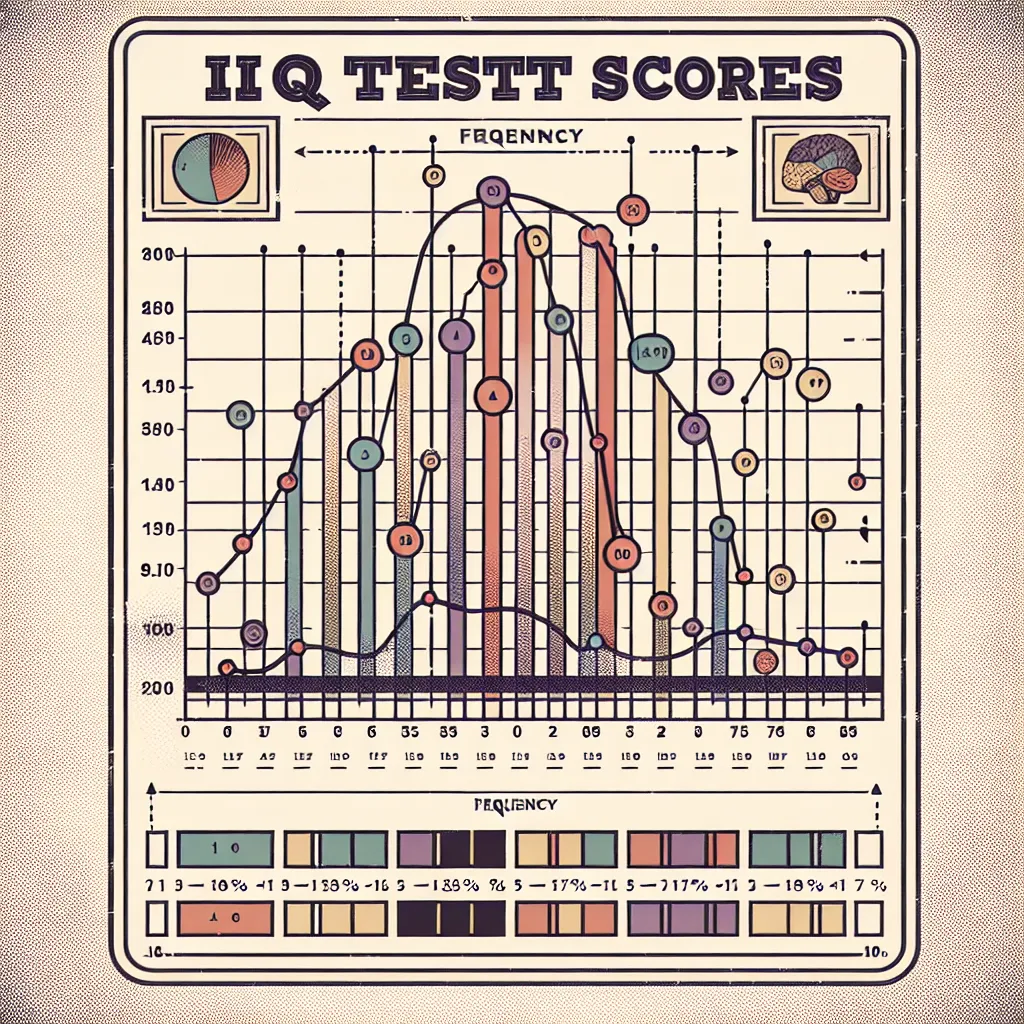Title: Breakdown Of IQ Test Ranges
Understanding IQ test ranges has become increasingly relevant in today’s knowledge-driven society. Intelligence Quotient (IQ) tests remain one of the most widely used tools for assessing cognitive abilities, offering insights into mental capabilities across various domains. As our understanding of intelligence evolves, these assessments continue to play a crucial role in educational, professional, and clinical settings.
If you are looking for an excellent way to get your IQ Score, try our highly accurate IQ Test.
Modern IQ testing has come a long way since its inception by French psychologist Alfred Binet. Today’s assessments incorporate advanced psychological research and cognitive science, providing more nuanced measurements of intellectual capabilities. These tests now account for multiple aspects of intelligence, from pattern recognition to verbal reasoning and spatial awareness.
The distribution of IQ scores follows a classic bell curve pattern, with 100 representing the median score. This standardized approach allows for meaningful comparisons across populations while accounting for age-related differences and cultural factors.
Standard IQ Ranges
Contemporary IQ classification uses the following ranges:
– **Very Low:** Scores below 70
– **Borderline:** Scores from 70 to 79
– **Low Average:** Scores from 80 to 89
– **Average:** Scores from 90 to 109
– **High Average:** Scores from 110 to 119
– **Superior:** Scores from 120 to 129
– **Very Superior:** Scores of 130 and above
Understanding IQ Ranges
Very Low (Below 70)
Recent research has highlighted the importance of early intervention for individuals in this range. Modern support systems and adaptive technologies have significantly improved learning outcomes and daily living capabilities for these individuals.
Borderline (70-79)
Current educational approaches emphasize personalized learning strategies for this range, focusing on strengths while providing targeted support for challenges. Many individuals in this range can achieve significant progress with appropriate educational support.
Low Average (80-89)
Modern research shows that individuals in this range often excel in practical intelligence and can develop strong compensatory strategies. Their success often depends more on persistence and motivation than raw cognitive ability.
Average (90-109)
This range encompasses about 50% of the population. Recent studies indicate that individuals in this range often demonstrate remarkable adaptability and can achieve high levels of success through dedicated effort and effective learning strategies.
High Average (110-119)
Contemporary research suggests that this range often correlates with strong academic performance and career success. These individuals frequently demonstrate excellent problem-solving abilities and quick learning capabilities.
Superior (120-129)
Modern studies show that individuals in this range often excel in innovative thinking and complex problem-solving. They frequently demonstrate strong leadership potential and creative abilities across various domains.
Very Superior (130 and above)
Recent research highlights the unique challenges and opportunities faced by individuals in this range. While they often demonstrate exceptional capabilities, they may require specialized educational approaches to reach their full potential.
Latest Understanding of IQ Determinants
Recent scientific advances have revealed the complex interplay between genetics, epigenetics, and environmental factors in determining cognitive abilities. Neuroplasticity research suggests that cognitive enhancement is possible throughout life, though the degree of improvement varies among individuals.
Modern Applications of IQ Testing
Today’s IQ tests are increasingly sophisticated, often incorporating artificial intelligence and adaptive testing methods. These advanced assessment tools provide more accurate and culturally fair evaluations while maintaining the fundamental principles of cognitive assessment.
Contemporary Perspectives on Intelligence
Modern psychology recognizes intelligence as a multifaceted construct. While IQ tests measure important cognitive capabilities, they’re now viewed alongside other measures like emotional intelligence (EQ), creative thinking, and practical intelligence to provide a more complete picture of human capability.
Intelligence assessment continues to evolve with our understanding of human cognition. While IQ tests remain valuable tools for measuring cognitive abilities, they’re increasingly complemented by other assessment methods. This comprehensive approach helps create a more nuanced understanding of human potential and capability.
The digital age has brought new opportunities for cognitive assessment and development. Online platforms now offer sophisticated IQ testing capabilities, making it easier than ever to explore and understand your cognitive abilities. However, it’s crucial to choose validated, scientifically-based assessments for accurate results.
Remember that while IQ scores provide valuable insights, they represent just one aspect of human capability. Success in life often depends on a combination of factors, including emotional intelligence, creativity, determination, and practical skills. Understanding your IQ can be a helpful tool for personal development, but it should be considered as part of a broader perspective on human potential and achievement.




Leave a Comment